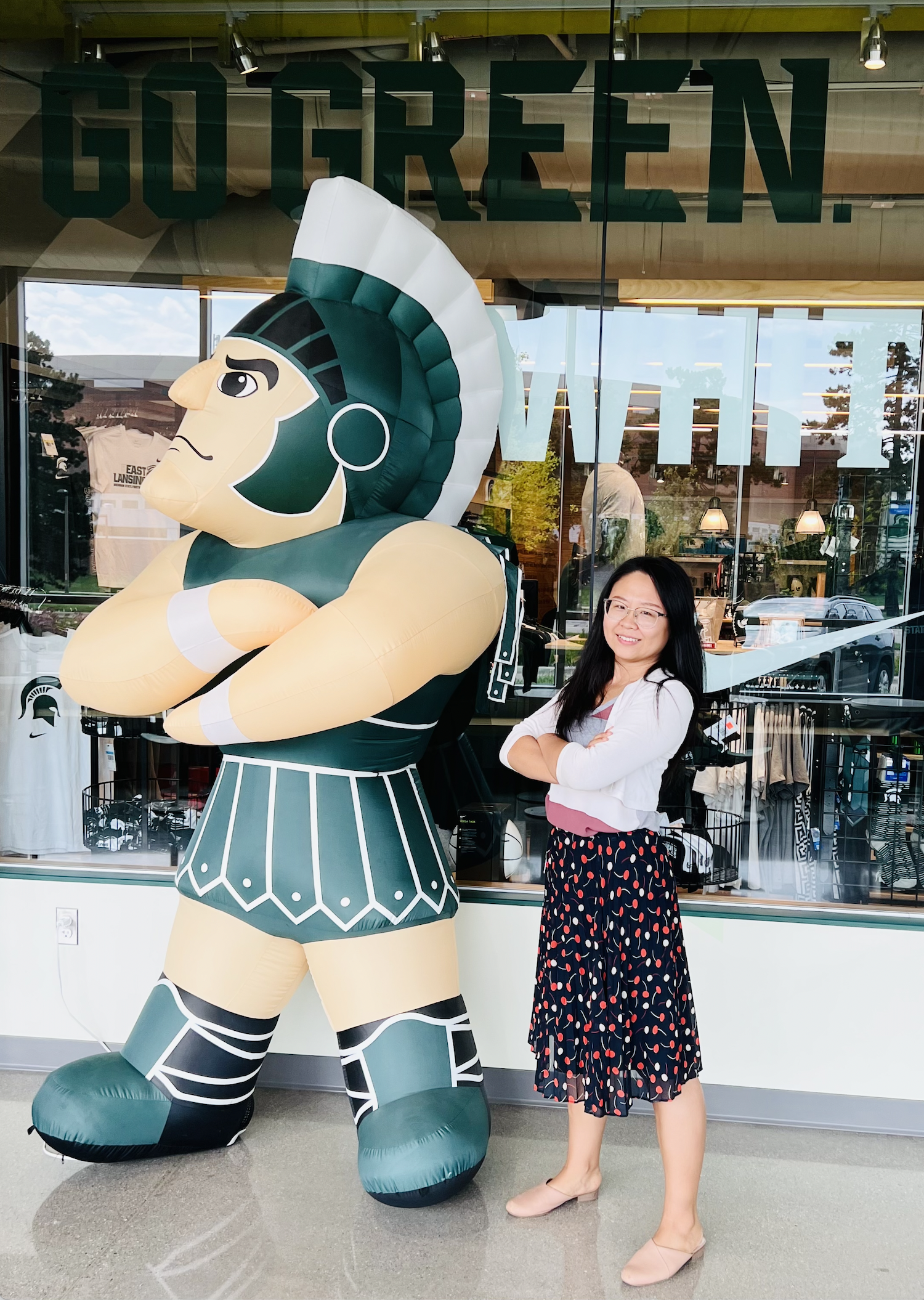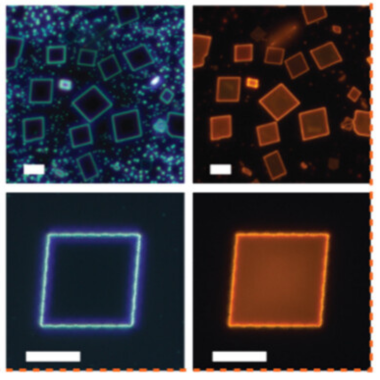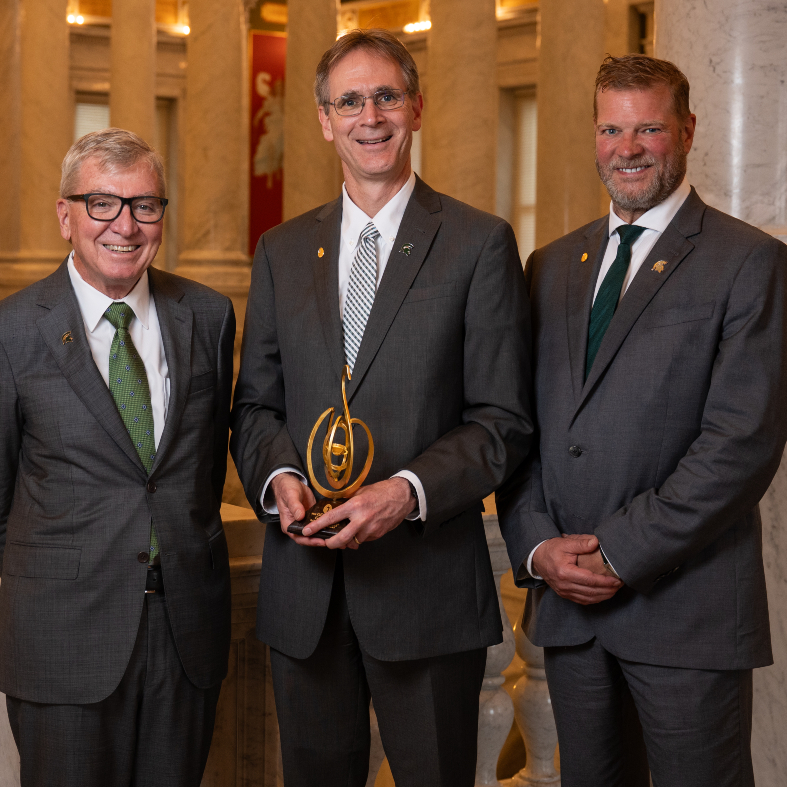Teaching green: Zhang receives ACS-CES Award
Article Highlights
- Michigan State academic specialist Dr. Veronica Mengqi Zhang has been recognized by the American Chemical Society for her innovative work that’s providing Spartan undergraduates firsthand experience with green and sustainable chemistry.
- In addition to giving students the chance to lead their own experiments and case studies, Zhang’s curriculum investigates green chemistry from a range of scientific and cultural angles.
- "We show students that green chemistry isn’t abstract. It’s ensuring everyone is free from the impact of toxic materials and has access to green, sustainable resources.”
Whether it’s school spirit or inspiring the next generation of chemists, you can’t beat going green.
Michigan State academic specialist Dr. Veronica Mengqi Zhang has been recognized by the American Chemical Society, or ACS, for her innovative work that’s providing Spartan undergraduates firsthand experience with green and sustainable chemistry.
Zhang specifically received the ACS-CES’s Award for Incorporation of Sustainability into Chemical Education.

This national accolade highlights educators who’ve worked to revolutionize chemistry curricula, instilling future scientists and professional leaders with a deeper understanding of the importance of greener, cleaner chemistry approaches.
“When we say green chemistry, it goes beyond a course. It’s a lens that allows us and our students to see the world differently,” Zhang said, who coordinates MSU’s large-enrollment organic chemistry labs.
“It’s an honor to be acknowledged, and to see this work recognized.”
Zhang’s award-winning chemistry curriculum is a project called “Amide Synthesis: Assessment of Catalyst Efficiency from a Green Chemistry Perspective.”
This organic chemistry course, offered to nearly 1,500 Spartan undergraduates each year, builds upon MSU Chemistry’s groundbreaking eduction efforts and the implentation of an approach known as three-dimensional learning (3DL) that's reshaping the science education of young Spartans.
In particular, Zhang's curriculum continues a National Science Foundation-funded effort to implement green and sustainable chemistry at MSU that was pioneered by Dr. Melanie Cooper and former Cooper group postdoctoral scholar, Dr. Elizbeth Day.
“As organic lab coordinator, Dr. Zhang has transformed the student experience, infusing it with green chemistry aspects and societal issues, and encouraging students to think about the impact of their work,” Cooper said, who’s a Lappan-Phillips Professor of Science Education in the College of Natural Science and College of Education.
"This NSF-funded curriculum meets an urgent need in our scientific workforce to understand how our decision-making as scientists and community members impacts our environment," Day said, who is now an assistant professor at the University of Texas at El Paso.
"MSU students will benefit from developing skills and competencies that are needed in a 21st century workforce.”
In addition to giving students the chance to lead their own experiments and case studies, Zhang’s curriculum investigates green chemistry from a range of scientific and cultural angles.
In the “Amide Synthesis” lab project – which also received Green Chemistry Education Challenges Award from Beyond Benign, a non-profit organization that provides educational resources for green chemistry and sustainable science – students undertake a series of hands-on, experimental investigations that emphasize green chemistry, collaboration and organic chemistry laboratory techniques.
Students must compare possible catalysts from a green perspective, determining for themselves which are most effective while still satisfying EPA standards.
They also examine the environmental impact and social justice implications of the chemicals used.

Eventually, students present their findings in an oral presentation that gives them a chance to consider their research with an eye for external audiences.
“I want students to be able to persuade me as a hypothetical stakeholder using evidence-centered approach. Green chemistry is a comparative concept. How did they go about their experiments, why did they make a particular choice, and can they provide the data to support their claims?” Zhang explained.
This process naturally means students might come up against lackluster results, like in real research. But for Zhang, there’s no such thing as “failure” in lab – only opportunities to learn through experience.
These efforts not only provide Spartan undergraduate students with a well-rounded educational experience but also cultivate a new perspective that encourages them to view the world through the lens of sustainability.
This empowers them to meet future challenges with innovative solutions that prioritize both scientific advancement and the well-being of our planet.
“In the end, the curriculum highlights decision-making in green chemistry. Students not only come to understand the chemical background, but how these findings apply to actual situations," Zhang said.
"We show students that green chemistry isn’t abstract. It’s ensuring everyone is free from the impact of toxic materials and has access to green, sustainable resources.”



